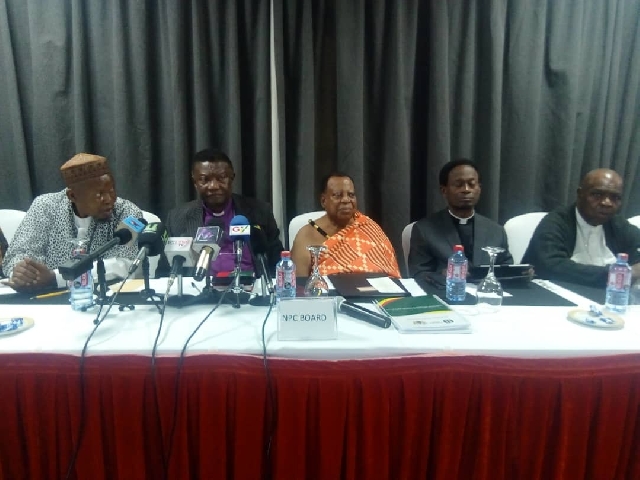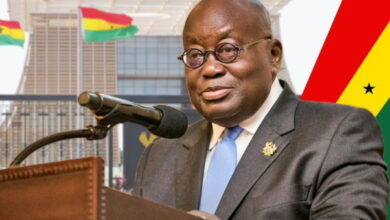We’re not worried about NDCs refusal to sign peace accord – Peace Council

Chairman of the National Peace Council, Prof. Emmanuel Asante, has disclosed that the Peace Council is not worried about the National Democratic Congress’s refusal to sign the peace accord put together by the council in their bid to end political party vigilantism.
However, they have taken notice of the NDCs concern about their refusal to sign the peace accord and have it addressed within the shortest possible time.
Speaking in an interview on Peace FM, he explained that they met all the stakeholders, discussed extensively what they will do to end political vigilantism and decided on the guidelines altogether.
“But with this development from the NDC, we will go back to the drawing table as a committee, put their inputs together, have it discussed and then see they will agree to it and append their signature,” he added.
The opposition National Democratic Congress (NDC) has refused to sign the final roadmap and code of conduct document on the eradication of political vigilantism in the country.
Not even the Peace Council Chair’s plea for the party to sign the document sufficed.
A leading member of the party, Alex Segbefia, said not only is the ceremony to sign the document premature, but the absence of other stakeholders to append their signatures to the document is also worrying.
This, he explained, is because while the roadmap has 22 recommendations, only four those relate to political parties. The other 18 belong to others namely, government, National Commission on Civic Education (NCCE), Civil Service Organisations, Electoral Commission (EC) among others.
The National Democratic Congress (NDC) and the New Patriotic Party (NPP) together with the National Peace Council agreed to draw a road map for the disbandment of political vigilantism.
The NDC, NPP and the National Peace Council held a 2-day meeting at the Peduase Lodge which ended on May 28, 2019.
They agreed on the following:
1. The National Peace Council with the support of Technical expert and with the input from the two political parties will present a working document on the road map for the considering of the parties taking into account the reports of the various stakeholders at the just ended dialogue for the eradication of politically related violence and this will be done within a period of 4 weeks.
2. The draft code of conduct designed by the National Peace Council will be considered as one of the deliverables in the presentation of the road maps.
The understanding is that the National Peace Council will select individuals from both parties to draft the road map.
There will also be a monitoring system to ensure that all the recommendations from the technical experts are being implemented.
Background
The latest event to trigger the call for the disbandment of political vigilantism came on the back of the Ayawaso by-elections.
There was chaos at Bawaleshie which resulted in a shooting incident and some 13 people sustaining injuries.
This chaos has been blamed on some masked men who are said to be civilian National Security operatives who stormed the area.
This prompted President Akufo-Addo to set up a Commission of Inquiry to probe the issue and after a month they made certain recommendations, one of such was to disband political party vigilante groups.
Source: Peace




